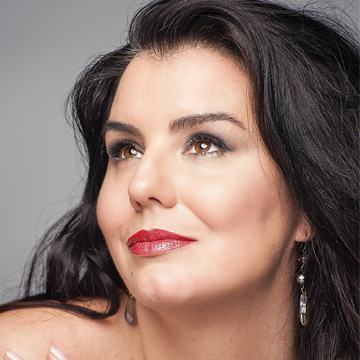
People & Business
Sarasota Opera Fall Concert
October 25, 2024 | Sarasota
Sarasota Opera is world-renowned for its Verdi Cycle. Between 1989 and 2016, the company undertook an ambitious project to perform all of the Italian composer Giuseppe Verdi’s operas and other musical compositions. Sarasota Opera is the only company in the world to have achieved this, earning itself the name of Verdi’s American home.
Scheduled for Nov. 15 and 17, the company will revisit that historic legacy with its Fall concert, The Music of Giuseppe Verdi. Principal Artists from the Sarasota Opera, with the Sarasota Orchestra, conducted by Artistic Director Victor DeRenzi, will present selections from Verdi’s works in concert. These selections will include well-known arias, duets and ensembles from a range of Verdi operas, nine in all, spanning most of Verdi’s career, from I Lombardi alla prima crociata (1843) to Aida (1871). In between, there will be moments from such beloved works as Rigoletto (1851), La traviata (1853) and Don Carlos (1867).
Artistic Director Victor DeRenzi, a noted Verdi specialist, chose this concert’s selections for a specific reason. “There are some familiar arias and duets, but I tried to find works that aren’t often done in concert form. Like the duet from Rigoletto that ends the concert, ‘Piangi, fanciulla,’ for Rigoletto and his daughter Gilda. It’s one of the great moments in Verdi opera, but it’s not something that is usually performed outside the context of the opera,” he said. “And ‘Ella giammai m’amò,’ from Don Carlo. The man who sings it was perhaps the most important leader in the world at the time, King Philip II of Spain, but he feels the same things we do. To me, Don Carlo is one of the first works of Verismo, an opera about real people. The characters in that opera, although they are aristocrats, feel the same loves and disappointments we all experience.”
Another selection to be performed at the concert is “Tardo per gl’anni e tremulo,” a duet from Attila, an epic, patriotic moment in an opera about Attila the Hun’s desire to conquer Rome.
“Verdi was very active in the movement for Italian unification and liberation from the Austrian Empire in the 19th century. This opera was a product of that feeling. In the duet, Ezio tells Attila, ‘You can have the universe, but leave me Italy.’ That idea was very meaningful to Verdi, and one that people could understand at the time it was written. One of the reasons Verdi became so popular was that he was a man of his time,” DeRenzi said.



You must be logged in to post a comment Login